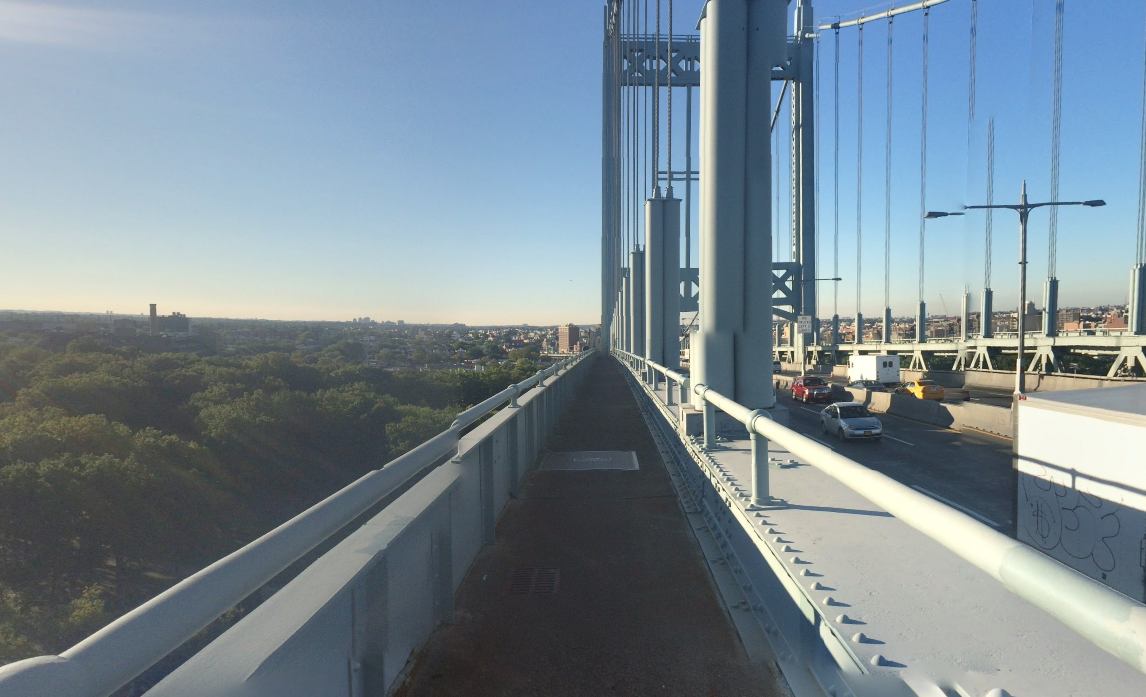Last Wednesday, Astoria resident Erin Horanzy was biking on the Triboro Bridge to her job in the West Bronx, as she does every weekday, when two police officers from MTA Bridges and Tunnels stopped her and told her to dismount. She'd seen more officers patrolling the bridge path since the MTA removed the toll booths and implemented cashless tolling, but had yet to get a hard time from them.
"I’ve just always smiled at them and said good morning," she said. "There’s been no requirement to dismount or anything from them."
Horanzy dismounted and kept walking, and when the officers were out of sight, she got back on her bike. There was no way she'd get to work on time if she didn't. "It takes a solid 30 minutes longer to cross that bridge if you’re walking," she said.
Someone must have radioed ahead, because another officer was waiting for Horanzy when she got to the other side of the bridge. He issued two tickets: one for biking in a dismount zone and the other for "failure to comply with a verbal order." She's still waiting to find out from the MTA how much the fines will set her back.
The fines surprised Horanzy. Other people who bike on the bridge path also report evidence that the MTA is cracking down on biking on the Triboro. Commenters on Reddit last month noted the recent installation of "bicycle riders prohibited" signs on the path.
The MTA has a longstanding policy of hostility toward people who try to bike across its bridges. The car-free paths tend to be much tighter than the ones on NYC DOT-owned crossings like the Williamsburg Bridge or Queensboro Bridge, and the agency seems to prefer making biking as inconvenient and financially risky as possible.
Even though people with bikes have a narrower profile when they are mounted than when they dismount, official MTA policy is to require people to walk their bikes across these paths. The narrow car-free path on the Henry Hudson Bridge wasn't widened during a recent rehab, and biking is still banned on the path.
On a long bridge like the Triboro, enforcing the rule effectively eliminates the bridge as a useful bike travel option. But the MTA always has the discretion not to fine people for biking on its paths. (Enforcement is typically more common on the bridges to the Rockaways, which tend to be more crowded than the Triboro.)
The MTA said nothing has changed on the Triboro.
"As part of MTA Bridges and Tunnels rules and regulations, bicyclists must walk their bikes via the pedestrian walkway across the RFK Bridge," an agency spokesperson said. "Signs at the facility are not new and this is regulation is enforced to ensure safety. Bridge and Tunnel Officers can issue a summons for this violation, but it’s at the discretion of the Officers to give a warning in lieu of a summons."
So until something changes, this is how the MTA says it's going to be: To cross the only direct bicycle connection between Queens and the Bronx, you'll have to walk your bike or risk a ticket.






